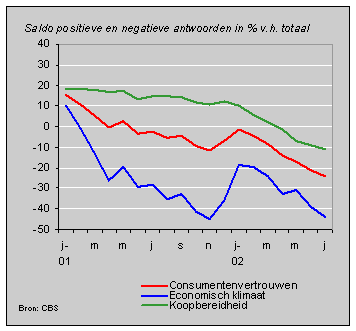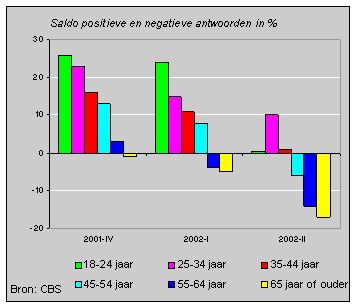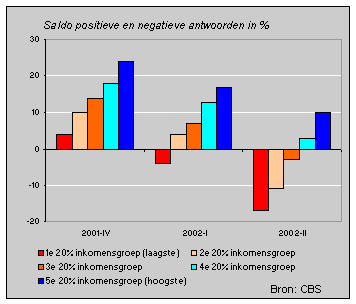Willingness to buy falls strongest among low incomes and young people

Consumers’ willingness to buy has fallen strongly since the beginning of this year. In the first quarter the decrease was small and about the same for all income groups. The sharper drop in the second quarter was strongest for the two lowest income groups in particular. These groups include relatively many young people and single older people.
Consumer confidence

Sharpest fall for 18-25 year-olds
Generally speaking, the younger people are, the more willing they are to spend their money. The limited decrease in the first quarter was about even for the various age categories. The sharp fall in the second quarter, however, was stronger for the age group 18-25 years than for other groups.
This may be a sign that this age group has problems finding work or temporary work, or keeping a job: the number of job vacancies has fallen since the third quarter last year and unemployment has risen slightly in recent months.
Willingness to buy by age

Willingness to buy among 25-34 year-olds on the other hand fell only slightly, which indicates that this age group has better financial prospects. For people over 35 willingness to buy fell by about average.
High incomes: slightly less willing to buy
For the highest income groups, the decrease is smaller than average. As far as income is concerned, the higher it is, the more willing people usually are to spend. This means that the consequences for consumption growth may not be a bad as expected, as the highest income groups spend the most money.
Willingness to buy by income group

The relatively small decrease in willingness to buy for the highest income group indicates that the revision of the rate of capital tax did not have much effect in this respect.
Price increases
The difference between high and low income groups corresponds with the possible role played by price increases. in the decrease of willingness to buy. Increases in prices of primary necessities weigh relatively more for the lowest than for the highest income groups.
Gert Buiten